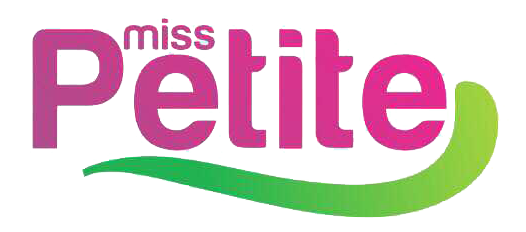Ini Dima-Okojie stars in Namaste Wahala
I expected “Namaste Wahala” to be a disaster even before I watched it.
I have three reasons for this: One, it’s on Netflix and I have never watched anything romantic and good on Netflix; two, it’s an Indian production which meant it would be a Zeeworld movie; three, the hype on Twitter resembled what I saw about “Wedding Party 2” (a disaster) and “Chief Daddy” (an unwatchable piece of junk). So I began watching “Namaste Wahala” with a suspicious eye, overly critical, ready to pounce at an error or weakness.
I was disappointed. The movie didn’t bomb. To rub it in, the movie actually flew. Well, not the scintillating flying we saw with the “Living in Bondage” sequel, nor the giddy flying we saw with “Merry Men 2”. This Hamisha Daryani Ahuja-directed movie was a hop, another hop, a high jump, flapping of wings, then moments in the sky, swimming in air, clobbered by winds and the elements but going all the same with everyone who cares about the movie having their heart in their mouth, fearing for the fall that never was.
Namaste Wahala: The Cliches and other jerks
“Namaste Wahala” is a story of love at first sight between a Nigerian lady who is also a lawyer Chidinma (Didi) played by Ini Dima-Okojie and an Indian man Raj who is also an investment bank played by Ruslaan Mumtaz. Everything about the story is cliched. The girl’s father doesn’t approve and the boy’s mother will rather lose an arm before she allows her son to marry a woman who can’t cook “Chole Bhature”, “Aalloo Paratha”, etc.
Of course, both characters are the only child of their parents. Also, of course, both of their parents have candidates for their children to marry. And, of course, they ended up together.
This is not the worst issue with this movie because nothing is completely new on the screen – every great movie derives its power from its execution (and we have seen worn-out stories told with powerful execution). One easy way to sell a story is by having strong supporting characters. “Namaste Wahala” failed in this regard. At least 50% of the time.
The character of Angie played by Anee Icha is a piece of overdramatic personae that could have benefitted with a deeper thought in the hands of the writer and director. She loves men too much (or let’s say the truth: she loves prick too much), she flaunts this attribute but expects to find true love and settle down today-today and live happily hereafter. She is too loud, too forward, insensitive, and full of energy that didn’t advance the cause of the story nor its aesthetics.
The Best Movies of 2019
The character of Angie was a distraction and a bad one. A character who is in our face all the time but doesn’t make us laugh, think, or empathize is a waste of characterization.
The character of Raj’s friend played by Koye “K10” Kekere-Ekun was okayish but the portrayal was terrible. A better actor would have done big things with the character.
Then comes Preemo played by Osas Ighodaro who is unduly rude, tactless, and annoying.
Sigh, there is the cameo of M.I Abaga. Fun, zero. Importance to the story, zero. Just misplaced vibes from a co-producer who wants the credit for his ego.
There are a couple of scenes without substance like the above and Anee Icha is in most (if not all) of them.
And there are a handful of promising scenes that ended up being lines of missed opportunities. One that stood out for me is the encounter between Didi’s mother played by Joke Silva and that of Raj’s mother played by Sujata Sehgal with their children in the background. I expected a brimstone of statements full of philosophical insights on culture, family, relationship, love, loyalty, and parenting. Or two or three of these. But the women merely parried insults and just scratched the surface.
The strengths of Namaste Wahala
The biggest strength of the movie is the pace. One moment Didi and Raj are seeing for the first time, the next scene they are in a relationship, then there is trouble. Water-tight, no time to beat around the bush or to overflog any aspect of the story’s development. Just moving. If Ahuja plays chess, she is an attack-minded player. Moving the pieces, weaving an attack towards the opponent’s king.
The second strength is the storyline of Jane. This one is popular on the Nigerian stage. A big man’s son batters a woman and she can’t get justice because she has no one to fight for her. Didi and her friend Leila played by the director of the movie take up this case and the batterer played by Frodd backed by his father’s affluence and a corporate system that shields high-profile crooks, is getting away with murder until Didi pulls a shocker.
Jane gets justice and Frodd losses money plus a slap in the face from RMD. I believe he got away rather too easily but the point is that there is another substory to the plot and we can revel in the catharsis of seeing on-screen justice that eludes us so much in reality.
Another subplot is between Didi and her father, Ernest, played by RMD. They are at loggerheads over the way law should be practiced, money should be made, his legacy, and, in extension, the person she chooses as her man – he should be a lawyer and a Nigerian or just Somto played by Linda Ejiofor‘s husband Ibrahim Suleiman.
And these struggles and tension between father and daughter are basically what saved the movie and lend it a backbone. You can fault many things in the movie, even the love affair between Raj and Didi on the grounds of its over-romanced and too-familiar ideas but you cannot fault this father-daughter struggle. You may say it wasn’t elaborated and it is rather resolved easily but in defense of this, there is something bigger at play: the tight-knit and pacy nature of the film.
Damijo is a big actor who carried his roles with class towards legendary finishes, and Dima-Okojie is a spirited actor who makes light work of roles that many of her peers would struggle to portray. If Ini Dima-Okojie and RMD weren’t in this movie, if their roles were not played by good actors, if there was no conflict between the two that preceded Raj’s love and carries more force, the movie may end up terrible.
But it didn’t bomb; in lieu of this, it flew, not to the high-heavens but far above the stuff we see on Iroko TV, on cinemas on Valentine’s day, on Zee World, on Telemundo, and the likes.
How Would you rate the film?
Over ten, I would give the film a 6. It was a good watch and it faired better than most of its Rom-Com peers but this says a lot about the quality of romantic comedies we are served, these days, rather than the excellence of “Namaste Wahala”. Would I watch this movie again? Would this movie be mentioned when great Nollywood movies of 2020/2021 are mentioned? No, no.



See Also:
Beautifull Pictures Of Mambilla Plateau In Taraba State

Olalekan Ajimoti – Blogger, Content Writer, and Digital Marketer helping brands and retailers build 8-figure e-commerce since 2016.
As a corporate trainer, brand communications expert, and brand consultant, I help people start, stay and grow in business leveraging digital skills and traditional expertise.






